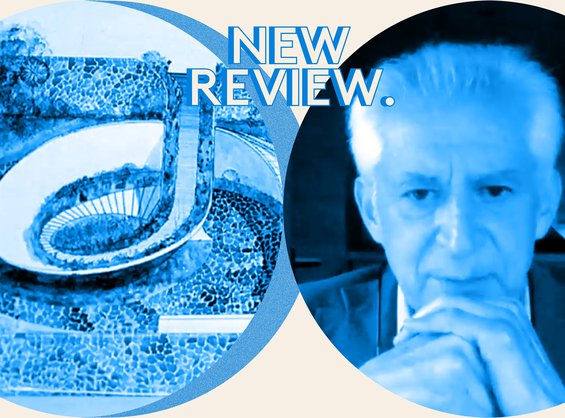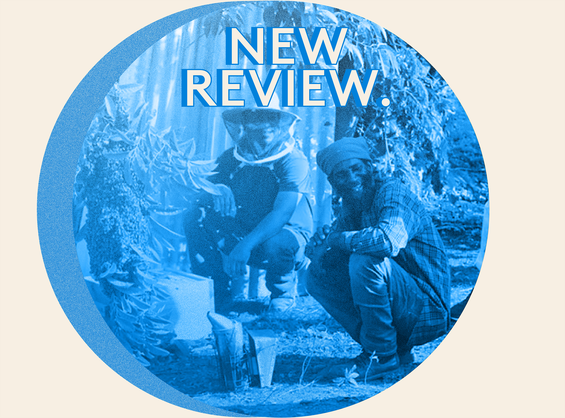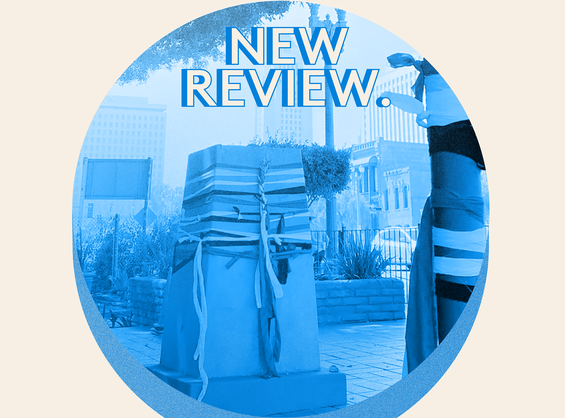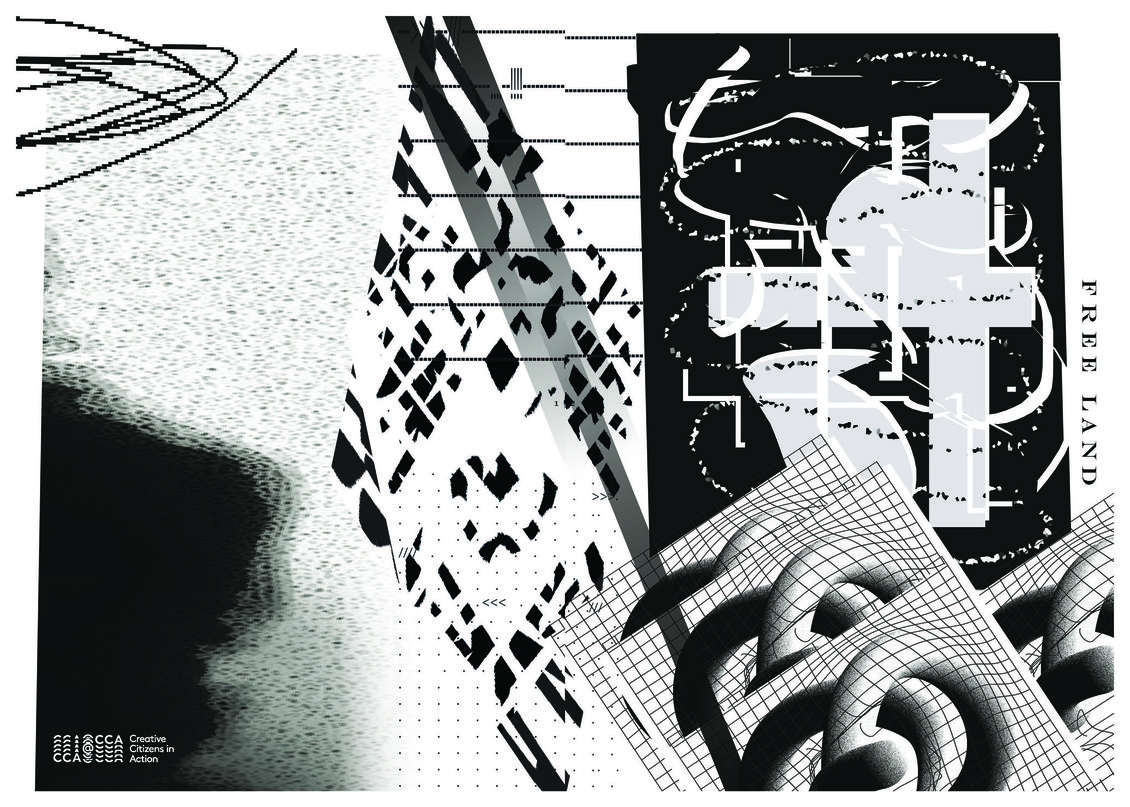CCA@CCA Archive | Fall 2021
Contents:
- 🎥 📖 Organic Architecture: A Conversation with Javier Senosiain | Organized by Prof. V
- 🎥 Dean Spade - Mutual Aid: Survival and Resistance in Times of Disaster | Organized by Cindy Bello
- 🎥 📖 In Defense of Life: Beekeeping and Sustainable Farming with Metz Andrade and Ana Elisa Pérez Quintero | Organized by Prof. V
- 🎥 Social Infrastructure from the Ground Up | Organized by Julia Grinkrug, Janette Kim, Neeraj Bhatia and Nataly Gattegno at California College of the Arts, Ignacio G. Galán at Barnard College, and Karen Kubey at Pratt Institute
- 🎥 📖 Monuments/AntiMonuments: Between Monuments and Community Engagement | Organized by Marina Pugliese
- 📖 Experiments in West African Dance | Organized by Genevieve Hyacinthe
- 📖 How can Fluid Mutualism become a design methodology? | Organized by Mary Banas and Ana Llorente
- 🎥 Creative Dissonances: Sahba Aminikia | Organized by Taro Hattori
- 📖 Conflict Drum | Organized by Taro Hattori
Organic Architecture: A Conversation with Javier Senosiain
Organized by Prof. V, CCA@CCA Faculty Coordinator
On Wednesday, September 22, 2021, Prof. V hosted a conversation with Javier Senosiain with musical performances by Howard Wiley.
Javier Senosiain is a Mexican architect best known for his explorations of the interrelationship between natural and built environments. He graduated from the National Autonomous University of Mexico (UNAM) in 1972 and is now professor in its architecture department. Senosiain is the founder of the Arquitectura Orgánica (Organic Architecture) firm in Mexico City and author of the books Bio-Architecture and Organic Architecture.
Howard Wiley is “the most prodigious Bay Area saxophonist of his generation” (Berkeleyside).
This event was co-presented by CCA@CCA and the Fall 2021 Architecture Lecture Series.
🎥 Watch a recording of this event below and on YouTube (ENGLISH AUDIO) ➞
🎥 Watch a recording of this event on YouTube (SPANISH AUDIO) ➞
"Rooms inside our homes are squared; bathroom tiles are squared; room storage has rectangular drawers; our beds are squared. As life progresses, we are confined into additional boxes until eventually we are placed into square coffins."
📖 Read Rebecca Velasquez's full review of "Organic Architecture" on Rewind Review Respond ➞
Dean Spade - Mutual Aid: Survival and Resistance in Times of Disaster
Organized by Cindy Bello, Adjunct II Professor, History of Art and Visual Culture Program
Dean Spade has been working to build queer and trans liberation based in racial and economic justice for the past two decades. He’s the author of Normal Life: Administrative Violence, Critical Trans Politics, and the Limits of Law, the director of the documentary “Pinkwashing Exposed: Seattle Fights Back!,” and the creator of the mutual aid toolkit at BigDoorBrigade.com. His latest book, Mutual Aid: Building Solidarity During This Crisis (and the Next), was published by Verso Press in October 2020.
This event was co-presented on Wednesday, October 13, 2021 by CCA@CCA and the Visual & Critical Studies Forum | 2021/2022 Series.
In Defense of Life: Beekeeping and Sustainable Farming with Metz Andrade and Ana Elisa Pérez Quintero
Organized by Prof. V, CCA@CCA Faculty Coordinator
On Wednesday, October 27, 2021, Prof. V hosted a forum on agroecology, food sovereignty, traditional Indigenous knowledge, sustainability, and the importance of apiculture featuring two beekeepers and farmers, Metz Andrade from the Bay Area and Ana Elisa Pérez Quintero from Puerto Rico.
Music provided by Kj, the Pied Piper of the Bay, an independent recording artist, entrepreneur, flautist, vocalist, producer and composer, living and working in the Bay Area for the past 26 years.
"Developing a relationship with the land that honors it will strengthen the island community as residents can rely on themselves and each other for sustenance. Being able to depend on each other is beneficial not only for this generation but for the many to come… it’s political, it’s liberating, and it’s the work that will save our lives."
📖 Read Katherine Jemima Hamilton's full review of "In Defense of Life" on Rewind Review Respond ➞
Social Infrastructure from the Ground Up
Organized by Julia Grinkrug, Janette Kim, Neeraj Bhatia and Nataly Gattegno at California College of the Arts, Ignacio G. Galán at Barnard College, Karen Kubey at Pratt Institute, and architecture and interior design students in each institution
This roundtable discussion brought community advocates, city leaders, and designers together to explore how social infrastructure is being shaped in West Oakland. Dorothy Lazard, Oakland History Center Librarian; Leslie Bowling-Dyer, member of Hoover-Foster Resident Action Council; and Walter Hood, principal of Hood Design Studio, discussed ways in which reciprocal relationships between mutual aid systems, civic initiatives, and community spaces have shaped the neighborhood's cultural history and can lead the charge towards a just transition.
This program was co-presented on Monday, November 1, 2021 by the Creative Citizens in Action initiative at CCA (CCA@CCA) and by Barnard + Columbia Architecture. This roundtable discussion was also presented alongside a walking tour of West Oakland conducted in September 2021 with David Peters of the Black Liberation Walking Tour and Gene Anderson of OurOakland.net.
Monuments/AntiMonuments: Between Monuments and Community Engagement
Organized by Marina Pugliese, Adjunct II Professor, History of Art and Visual Culture Program and Head of Public Art, City of Milan
Monuments/AntiMonuments: Between Monuments and Community Engagement was a series of three seminars addressing the shifting historical meaning across different times and communities, including shifts in the relationship between the role of artistic value and what and who can or should be celebrated. Monuments/AntiMonuments: Between Monuments and Community Engagement was moderated by Cheyenne Giovannucci, Abigail Wang, Ezra Chaltiel, Akaysha Calhoun, Hasan Alshakhes, Jackson Snyder, and Emma Brand. The series was co-presented by CCA@CCA and the History of Art and Visual Culture program.
Thursday, November 4: Kendal Henry is an artist and curator who lives in New York City and has specialized in the field of public art for over 30 years. He illustrates that public art can be used as a tool for social engagement, civic pride and economic development through the projects and programs he has initiated in the US and internationally. He’s currently the Assistant Commissioner of Public Art at the NYC Department of Cultural Affairs and an adjunct professor at New York University’s Steinhardt School of Culture, Education and Human Development.
🎥 Watch a recording of Kendal Henry's talk below and on YouTube ➞
Thursday, November 11: Romi Crawford is professor of Visual and Critical Studies at the School of the Art Institute of Chicago. Her research and writing explore areas of race and ethnicity as these relate to American visual culture (including art, film, and photography). She regularly writes on contemporary art and is co-author of The Wall of Respect: Public Art and Black Liberation in 1960s Chicago and editor of Fleeting Monuments for the Wall of Respect.
Thursday, November 18: Joel Garcia (Huichol) is an Indigenous artist and cultural organizer that uses Indigenous-based frameworks to center those most impacted, and arts-based strategies such as printmaking, installations, creative action, and altar-making to raise awareness of issues facing underserved communities, youth, and other targeted populations. In various roles, he has worked with Indigenous communities across borders in support of issues of land, access, and self-determination. His work explores healing and reconciliation, as well as memory and place. He’s a former fellow of Monument Lab, and the Intercultural Leadership Institute as well as artist-in-residence at Oxy Arts and AIR (Los Angeles Cleantech Incubator).
🎥 Watch a recording of Joel Garcia's talk below and on YouTube ➞
"What happens at the moment(s) after an anti-monumental act? What kinds of anti-monuments can take their place? Does a revenge fantasy on a statue create material change for people oppressed and dispossessed by these figures? Maybe I’m asking the wrong questions of these actions, but, like Garcia, I agree that the “what’s next” is as important, if not more, than the action itself."
📖 Read Katherine Jemima Hamilton's full review of Joel Garcia's talk on Rewind Review Respond ➞
Experiments in West African Dance
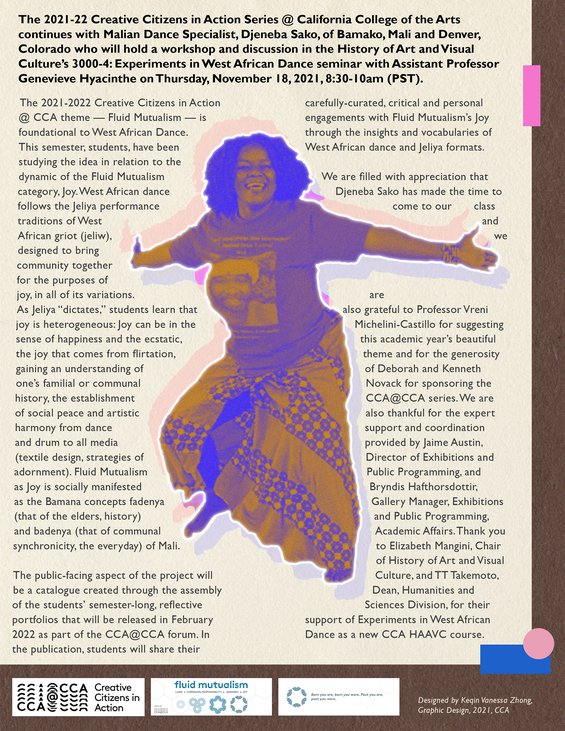
Organized by Genevieve Hyacinthe, Assistant Professor, History of Art and Visual Culture Program
The 2021–22 Creative Citizens in Action theme—Fluid Mutualism—is foundational to West African Dance. In fall 2021, students in Assistant Professor Genevieve Hyacinthe's Experiments in West African Dance course studied the idea in relation to the dynamic of the Fluid Mutualism category, Joy. West African dance follows the Jeliya performance traditions of West African griot (jeliw), designed to bring community together for the purposes of joy, in all of its variations. As Jeliya "dictates," students learn that joy is heterogenous: Joy can be in the sense of happiness and the ecstatic, the joy that comes from flirtation, gaining and understanding of one's familial or communal history, the establishment of social peace and artistic harmony from dance and drum to all media (textile design, strategies of adornment). Fluid Mutualism as Joy is socially manifested as the Bamana concepts fadenya (that of the elders, history) and badenya (that of communal synchronicity, the everyday) of Mali.
On Thursday, November 18, 2021, Malian Dance Specialist Djeneba Sako, of Bamako, Mali and Denver, Colorado, will hold a workshop and discussion with the students in this course.
In February 2022, the students presented a catalog created through the assembly of their semester-long, reflective portfolios. In this catalog, they shared carefully-curated, critical and personal engagements with Fluid Mutualism's Joy, through the insights and vocabularies of West African dance and Jeliya formats.
How can Fluid Mutualism become a design methodology?
Organized by Mary Banas, Adjunct II Professor, MFA Design and Graphic Design Program, and Ana Llorente, Adjunct II Professor, MFA Design and Graphic Design Program
The Studio: Graphic Design is a year-long course for Year 0 graduate students in the MFA Design program at CCA. In the fall semester, students forge the skills needed to make ideas into form, as well as to understand form as ideas. The assignments in this course emphasize visual communication's social political, economic, environmental, and philosophical implications. Project prompts aim to catalyse the personal agenda of the student and motivate their search for an individual path as a creator.
The students in the 2021-22 iteration of the course produced a publication featuring projects that aim to reveal and identify new or salient connections between the past and present, or the present and past. Beginning with their own definition of land as it relates to their lineage, identity, or personal culture, each designer engaged in deep research, both textual and visual. They defined, in their own words, "Fluid Mutualism," developed a line of inquiry, and formalized original content.
The authors of this publication then explored: how can Fluid Mutualism become a design methodology? The final outcome is a series of broadsheets which investigate and/or examine Koyaanisqatsi: life out of balance, foster care in America, digital discrimination, the loss of cultural records, the craft of understanding, California as an indigenous-led anarchist state, and art as a tool to remember.
Authors: Zijun Wen, Sophie Wilton, Claire Martin, (David) Jin Sung Moon, Fahmeeta Yahiya, Beth Holzer, and Cole Ryder.
Creative Dissonances: Sahba Aminikia
Organized by Taro Hattori, Senior Adjunct, Individualized Studies Program
On Monday, November 15, 2021, Sahba Aminikia, an Iranian-American contemporary music composer, artistic director, performer, and educator discussed how his life-experiences of personal, cultural, and political conflicts are transformed into his work and how music in general helps us live through challenging times. The talk is part of a course “Dissonance - Music and Conflict,” one of the Upper Division Interdisciplinary Studio courses at California College of the Arts, which helps students incorporate our experiences of conflicts in our creative making practices learning from how music transcends borders and unites us regardless of the conflicts that exist.
Born in post-revolutionary wartime in Iran, Sahba Aminikia was raised during a newly configured democracy that evolved from mass-executions, war, and violence into a society that—through the use of the internet and technology—challenges the current political and social infrastructure. He has been trained in musical composition under Iranian pianists Nikan Milani, Safa Shahidi, and Mehran Rouhani. He later relocated to Russia and studied at the St. Petersburg State Conservatory under Boris Ivanovich Tishchenko. His musical compositions have been widely performed around the world by contemporary classical ensembles, orchestras, and bands including Kronos, International Contemporary Ensemble, Carnegie Hall Ensemble Connect, San Francisco Conservatory of Music New Music Ensemble. Aminikia is the founder and the artistic director of Flying Carpet Festival, a performing arts festival for children in war zones.
Conflict Drum
Organized by Taro Hattori, Senior Adjunct, Individualized Studies Program
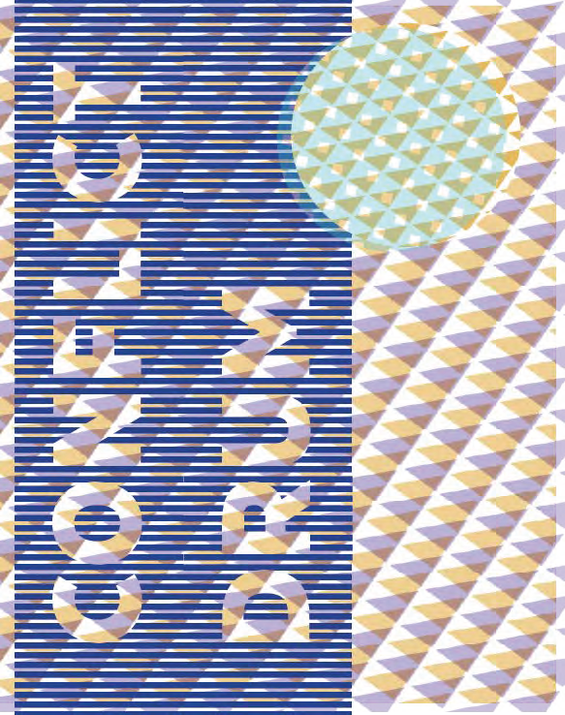
Conflict Drum is a publication created as part of Taro Hattori's "Dissonance—Music and Conflict" course, which explored how musical ideas could be applied to visual art, design, and literary arts practices, and let us transform our experience of conflict. The drum and other percussion have been used not only for making music but also for communicating, holding rituals, binding communities together, or sometimes, with hostility, to scare enemies away in military settings. Understanding the etymology of the word "percussion" as percussioun (early 15th c) "a striking, a blow, internal injury, contusion," and percutere (Latin) "to strike hard, beat, smite; strike through and through," students explored aspects of our lives that are percussive and interwoven in our identity, society, and culture. They then used their research to develop a plan for a creative work that would have a positive impact on our future.
Participating students: Kefeng Lyu, Mengyao Xiu, Alexander Audet, Xue Zhao, Morgan Lewis, Eleni Dolkas, Courtney O'Callaghan, Emilie Cevallos Paredes, Alejandro Joaquin Hernandez, Canqui Yang, Hasan Alshakhes, Krishi Shah, Jason Munoz, Mengqi Wen, and Simin Li.

